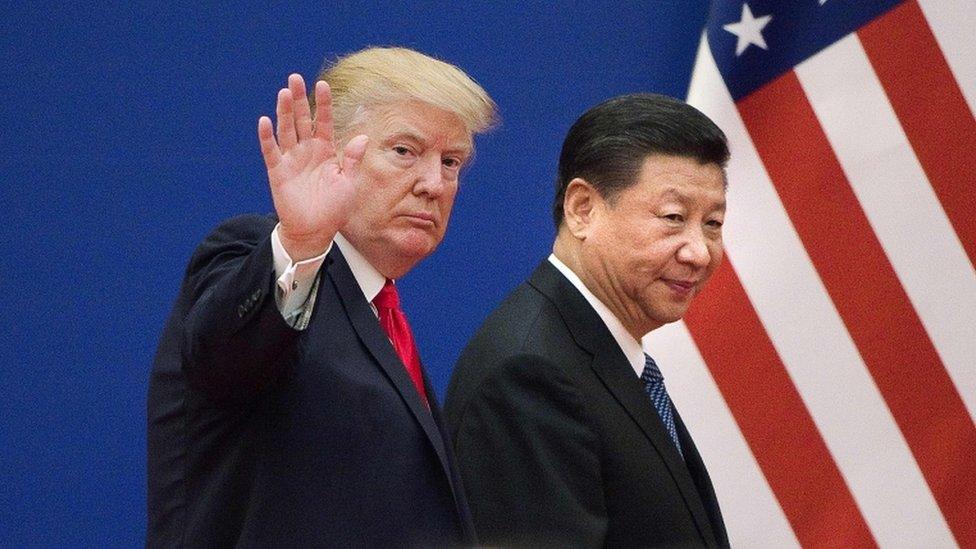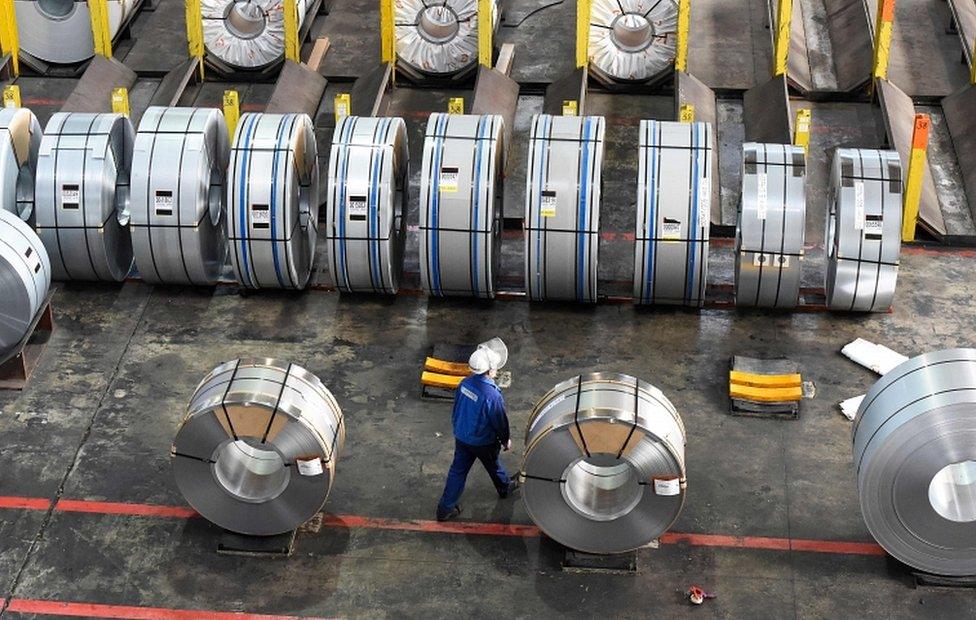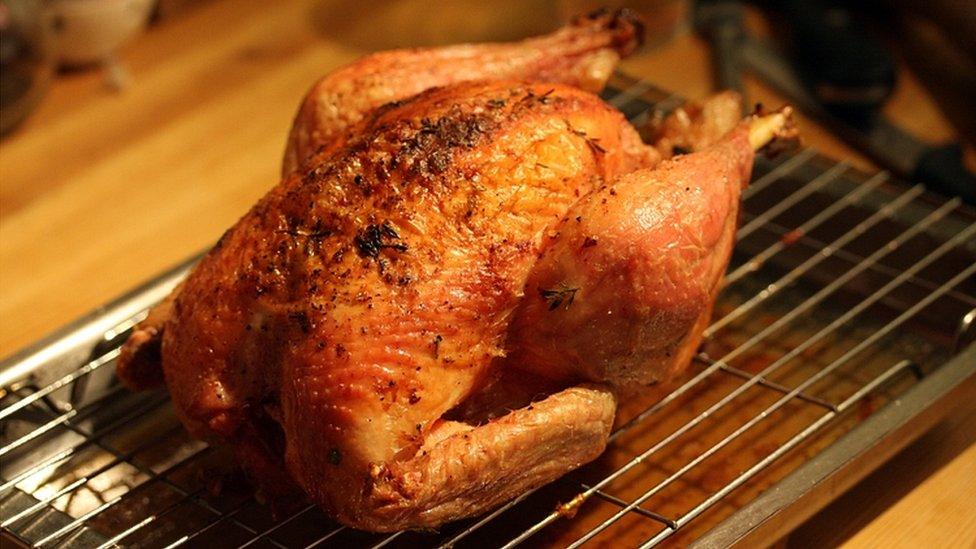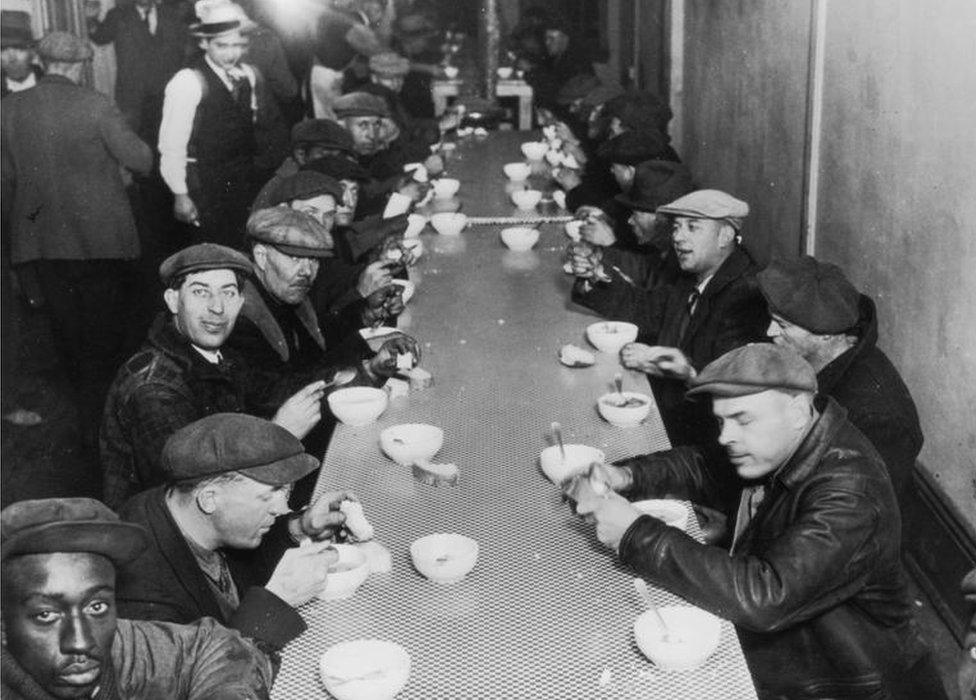Are we on the brink of a US-China trade war?
- Published

The US and China have imposed tariffs on each other's goods. But will a skirmish between the world's two biggest economies turn into a full-on trade war?
Perhaps it has already started. Both sides have struck initial blows.
The US has imposed tariffs on imports of steel and aluminium. Countries accounting for the bulk of those imports have been exempted (possibly temporarily), but China is not among them.
For its part, China has struck back with tariffs on US goods including pork, wine, fruit and nuts.
So, when does a series of commercial skirmishes become a trade war? There's no real quantitative definition, but the US and China have taken steps and engaged in rhetoric - with the potential for the war of words to escalate into an economically serious conflict.
Despite this, the amount of trade affected by these measures so far is fairly modest.

Last year, the US imported something in the region of $3bn (£2.12bn) worth of steel and aluminium from China. That's less than 1% of total US imports of Chinese goods.
China's retaliation is aimed at about the same amount of trade, but it is a larger share of total imports from the US (about 2%).
It's also arguable that the steel and aluminium tariffs are not really trade war measures, as they are not specifically directed at China.
The US has justified the action on national security grounds, suggesting that the country's military should not be so dependent on imports of the metals. And China is not the only country on the receiving end of the new measures, even after all the exemptions.
But there are more measures in the pipeline. The scope is larger and it is very much directed at China.
US President Donald Trump has proposed additional tariffs specifically on Chinese goods, with the objective of persuading China to end what he calls the theft of American intellectual property - such as technology and copyright.
It's one element in a wider complaint (shared with many others inside the US and beyond) that China trades unfairly.
The proposal would affect more than 10 times as much trade. China has responded with proposals that would affect a similar amount of imports from the US, including soybeans and cars.
This second round of proposals really does have the potential to have a bigger impact. In the case of China's threat, it would cover more than one third of the goods it currently buys from the US.
But, unlike the steel and aluminium spat, so far they are just proposals.

In the 1960s, chicken became the focus of a major dispute
US officials have said are they are ready to talk with China.
It's also striking that both sides are making use of the procedures available in the World Trade Organisation (WTO) to reduce the risks of disputes escalating.
The US, for example, has asked for consultations with China on intellectual property - the first stage in the WTO's dispute system, which can lead to an independent panel being established to rule on whether the rules have been broken. These panels can authorise a country sinned against to retaliate with its own tariffs.
It must be said that both sides appear reluctant to give the WTO's dispute procedure time to reach a conclusion. It does take many months - sometimes years.
And of course the judgement won't inevitably be what the complaining country wants. Even if they do retaliate without having been authorised by the WTO, the fact that both are making use of the procedure suggests they attach some value to the rules-based system that the organisation manages.

Trade rows in the 1930s have been blamed for worsening the Great Depression
There have been many trade spats before. George W Bush announced steel tariffs early in his presidency and the EU got as far as drawing up a list of products for retaliatory tariffs, in addition to filing a complaint in the WTO along with several other countries. But the retaliation didn't actually happen, as the US withdrew the steel tariffs after an adverse ruling from the WTO.
There was a skirmish in the 1960s known as the "chicken war"., external Germany and France imposed tariffs on chicken imports in response to cheap imports from the US. The US fought back with tariffs on potato starch, dextrin, brandy and light trucks. Half a century on most of this is history. But the 25% tariff on light trucks into the US remains.
The really big dispute was during the 1930s, when many countries raised trade barriers. That probably aggravated and prolonged the Great Depression.
There's no question that the rhetoric this time round is heated. But the blows actually struck have not yet been that severe. That could change.
But the relatively mild reaction of financial markets suggests investors at least think there is a decent chance of avoiding an all-out trade war.


